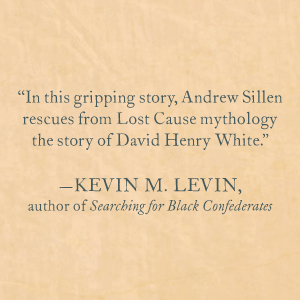
Johns Hopkins UniversityEst. 1876
America’s First Research University
The Forgotten Sailor: David Henry White’s Struggle for Freedom on the High Seas

In the midst of the American Civil War, a free Black teenager named David Henry White embarked on a harrowing journey. Born in the coastal town of Lewes, Delaware, White’s life took a fateful turn when he was kidnapped from his ship and enslaved on the infamous Confederate commerce raider, the CSS Alabama. At just 17 years old, White was living proof that freedom did not guarantee safety in the mid-19th century United States. Despite being born free, White’s life was tragically appropriated by Confederate captain Raphael Semmes, who captured White on the high seas and later enslaved him aboard the Alabama for over 600 days.
White's story is one of resilience, stolen identity, and a fight for survival in a world intent on erasing his existence. Andrew Sillen's new book, Kidnapped at Sea: The Civil War Voyage of David Henry White, reveals the true story of how White’s life was intentionally distorted to fit the Lost Cause myth—a false narrative created to downplay the horrors of slavery and glorify the Confederacy. Captain Semmes would later write that enslaving White was a favor, a grotesque distortion meant to justify White’s captivity.
The Confederate narrative of White’s life wasn’t just a simple misunderstanding—it was a deliberate act of erasure. The Lost Cause myth, which falsely portrayed enslaved Black people as content and loyal, was constructed to romanticize the Southern way of life. White’s tragic tale was appropriated to support this narrative and his legacy was rewritten to suit the needs of those who sought to glorify the Confederacy. This new book shatters the racist mythology that painted White as a willing servant, exposing the falsehoods perpetuated by Confederate sympathizers. Instead, it restores White’s rightful place in history—a young man struggling against forces determined to strip him of his identity, his freedom, and his humanity.
Sillen meticulously reconstructs White’s journey, from his childhood in Lewes to his forced servitude aboard the Alabama. Through careful archival research, Sillen pieces together White’s story, showing how his life was stolen by a narrative that sought to erase the voices of those like him. The book also serves as a reminder of the ongoing struggle to expose the lies of the Lost Cause and to recognize the lasting impact of such false histories on American society today.
White’s story is one that resonates with modern readers, particularly in an era where historical narratives are being revisited and questioned. As current political movements challenge long-held beliefs about history and identity, White’s tale serves as a powerful reminder of the importance of reclaiming the voices that have been silenced. His story urges us to reexamine the stories we’ve been told about the Civil War, slavery, and Black resilience.








